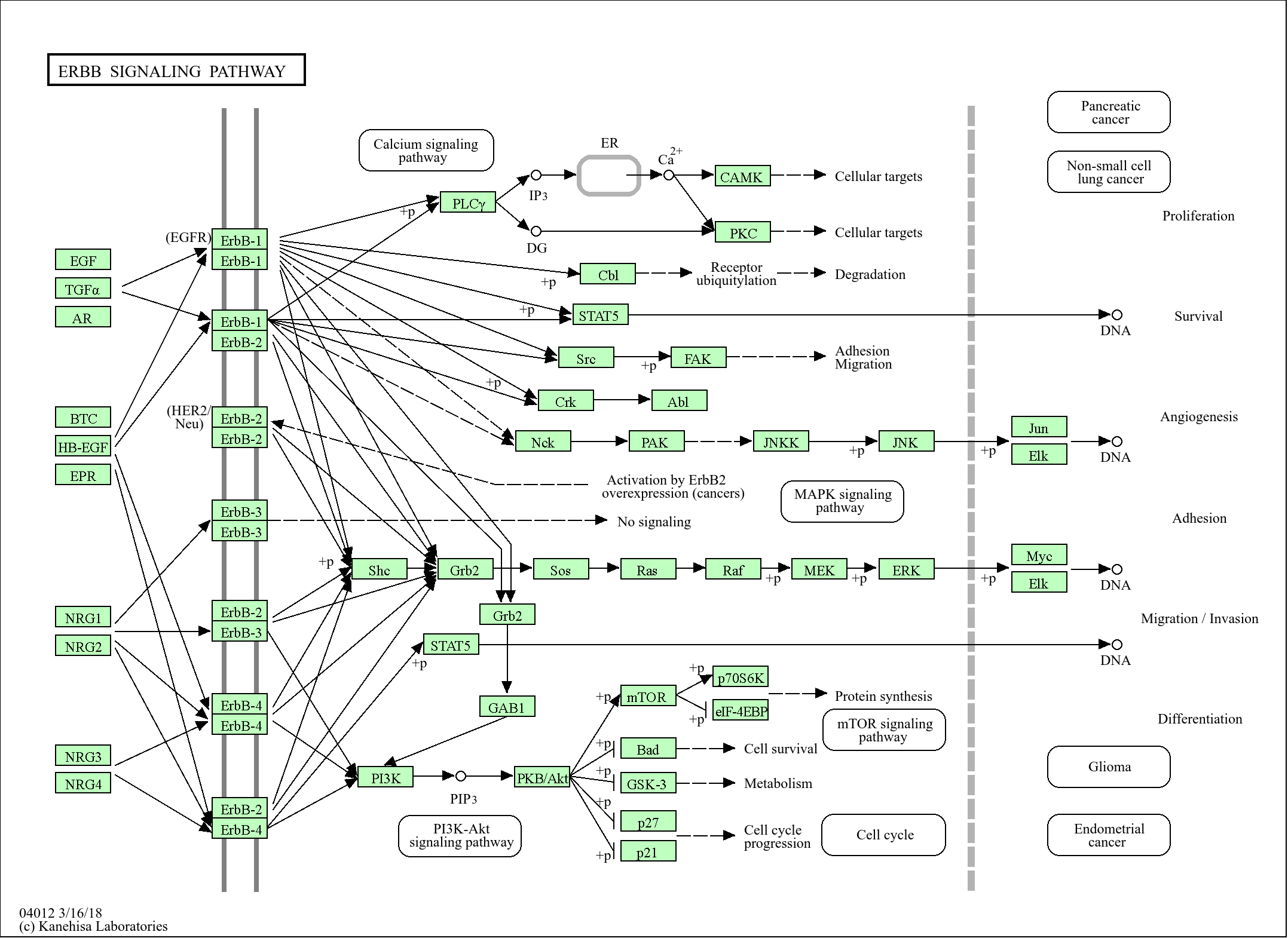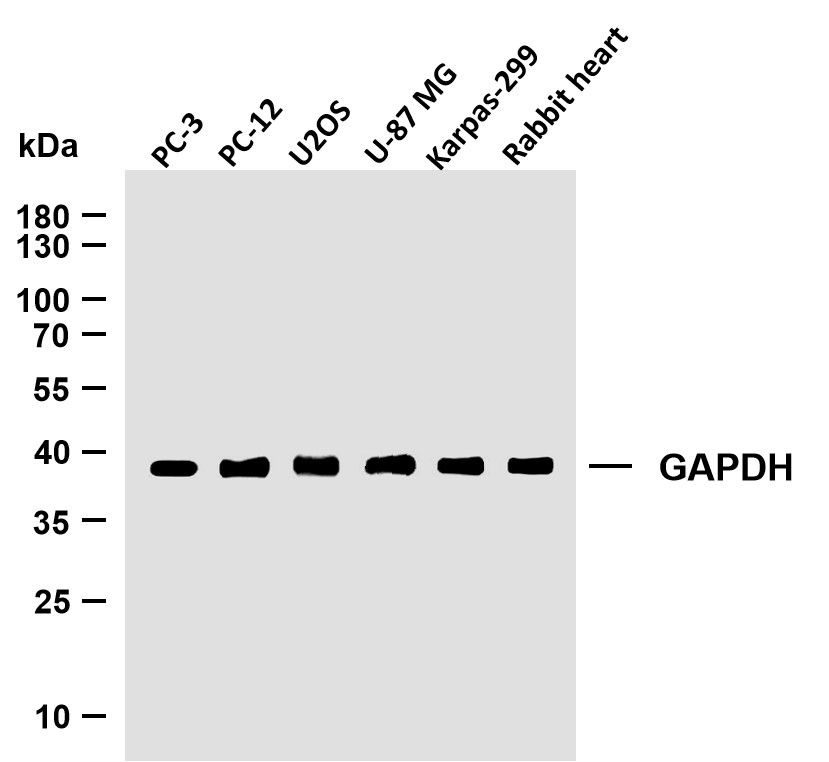
Catalog: YM0354
Size
Price
Status
Qty.
200μL
$600.00
3 weeks
0
100μL
$350.00
3 weeks
0
50μL
$210.00
3 weeks
0
Add to cart


Collected


Collect
Main Information
Target
IFN-γ
Host Species
Mouse
Reactivity
Human
Applications
WB, ELISA
MW
19kD (Calculated)
Conjugate/Modification
Unmodified
Detailed Information
Recommended Dilution Ratio
WB 1:500-1:2000; ELISA 1:10000; Not yet tested in other applications.
Formulation
Liquid in PBS containing 50% glycerol, 0.5% BSA and 0.02% sodium azide.
Specificity
IFN-γ Monoclonal Antibody detects endogenous levels of IFN-γ protein.
Purification
Affinity purification
Storage
-15°C to -25°C/1 year(Do not lower than -25°C)
MW(Calculated)
19kD
Modification
Unmodified
Clonality
Monoclonal
Related Products
Antigen&Target Information
Immunogen:
Recombinant human IFN-γ (BioSource company, Cat.No. PHC4033)
show all
Specificity:
IFN-γ Monoclonal Antibody detects endogenous levels of IFN-γ protein.
show all
Gene Name:
IFNG
show all
Protein Name:
Interferon gamma
show all
Other Name:
IFNG ;
Interferon gamma ;
IFN-gamma ;
Immune interferon
Interferon gamma ;
IFN-gamma ;
Immune interferon
show all
Background:
This gene encodes a soluble cytokine that is a member of the type II interferon class. The encoded protein is secreted by cells of both the innate and adaptive immune systems. The active protein is a homodimer that binds to the interferon gamma receptor which triggers a cellular response to viral and microbial infections. Mutations in this gene are associated with an increased susceptibility to viral, bacterial and parasitic infections and to several autoimmune diseases. [provided by RefSeq, Dec 2015],
show all
Function:
Disease:In Caucasians, genetic variation in IFNG is associated with the risk of aplastic anemia (AA) [MIM:609135]. AA is a rare disease in which the reduction of the circulating blood cells results from damage to the stem cell pool in bone marrow. In most patients, the stem cell lesion is caused by an autoimmune attack. T-lymphocytes, activated by an endogenous or exogenous, and most often unknown antigenic stimulus, secrete cytokines, including IFN-gamma, which would in turn be able to suppress hematopoiesis.,Function:Produced by lymphocytes activated by specific antigens or mitogens. IFN-gamma, in addition to having antiviral activity, has important immunoregulatory functions. It is a potent activator of macrophages, it has antiproliferative effects on transformed cells and it can potentiate the antiviral and antitumor effects of the type I interferons.,online information:Interferon gamma entry,pharmaceutical:Available under the name Actimmune (Genentech). Used for reducing the frequency and severity of serious infections associated with chronic granulomatous disease (CGD).,PTM:Proteolytic processing produces C-terminal heterogeneity, with proteins ending alternatively at Gly-150, Met-157 or Gly-161.,similarity:Belongs to the type II (or gamma) interferon family.,subunit:Homodimer.,tissue specificity:Released primarily from activated T lymphocytes.,
show all
Cellular Localization:
Secreted.
show all
Tissue Expression:
Released primarily from activated T lymphocytes.
show all
Research Areas:
>>Proteasome ;
>>Cytokine-cytokine receptor interaction ;
>>HIF-1 signaling pathway ;
>>Necroptosis ;
>>TGF-beta signaling pathway ;
>>Osteoclast differentiation ;
>>Antigen processing and presentation ;
>>JAK-STAT signaling pathway ;
>>Natural killer cell mediated cytotoxicity ;
>>IL-17 signaling pathway ;
>>Th1 and Th2 cell differentiation ;
>>Th17 cell differentiation ;
>>T cell receptor signaling pathway ;
>>Type I diabetes mellitus ;
>>Leishmaniasis ;
>>Chagas disease ;
>>African trypanosomiasis ;
>>Malaria ;
>>Toxoplasmosis ;
>>Amoebiasis ;
>>Tuberculosis ;
>>Hepatitis C ;
>>Influenza A ;
>>Herpes simplex virus 1 infection ;
>>Pathways in cancer ;
>>PD-L1 expression and PD-1 checkpoint pathway in cancer ;
>>Inflammatory bowel disease ;
>>Systemic lupus erythematosus ;
>>Rheumatoid arthritis ;
>>Allograft rejection ;
>>Graft-versus-host disease ;
>>Fluid shear stress and atherosclerosis
>>Cytokine-cytokine receptor interaction ;
>>HIF-1 signaling pathway ;
>>Necroptosis ;
>>TGF-beta signaling pathway ;
>>Osteoclast differentiation ;
>>Antigen processing and presentation ;
>>JAK-STAT signaling pathway ;
>>Natural killer cell mediated cytotoxicity ;
>>IL-17 signaling pathway ;
>>Th1 and Th2 cell differentiation ;
>>Th17 cell differentiation ;
>>T cell receptor signaling pathway ;
>>Type I diabetes mellitus ;
>>Leishmaniasis ;
>>Chagas disease ;
>>African trypanosomiasis ;
>>Malaria ;
>>Toxoplasmosis ;
>>Amoebiasis ;
>>Tuberculosis ;
>>Hepatitis C ;
>>Influenza A ;
>>Herpes simplex virus 1 infection ;
>>Pathways in cancer ;
>>PD-L1 expression and PD-1 checkpoint pathway in cancer ;
>>Inflammatory bowel disease ;
>>Systemic lupus erythematosus ;
>>Rheumatoid arthritis ;
>>Allograft rejection ;
>>Graft-versus-host disease ;
>>Fluid shear stress and atherosclerosis
show all
Signaling Pathway
Cellular Processes >> Cell growth and death >> Necroptosis
Organismal Systems >> Immune system >> Natural killer cell mediated cytotoxicity
Organismal Systems >> Immune system >> Antigen processing and presentation
Organismal Systems >> Immune system >> T cell receptor signaling pathway
Organismal Systems >> Immune system >> Th1 and Th2 cell differentiation
Organismal Systems >> Immune system >> Th17 cell differentiation
Organismal Systems >> Immune system >> IL-17 signaling pathway
Organismal Systems >> Development and regeneration >> Osteoclast differentiation
Human Diseases >> Cancer: overview >> Pathways in cancer
Human Diseases >> Cancer: overview >> PD-L1 expression and PD-1 checkpoint pathway in cancer
Human Diseases >> Immune disease >> Systemic lupus erythematosus
Human Diseases >> Immune disease >> Rheumatoid arthritis
Human Diseases >> Immune disease >> Inflammatory bowel disease
Human Diseases >> Immune disease >> Allograft rejection
Human Diseases >> Immune disease >> Graft-versus-host disease
Environmental Information Processing >> Signal transduction >> TGF-beta signaling pathway
Environmental Information Processing >> Signal transduction >> JAK-STAT signaling pathway
Environmental Information Processing >> Signal transduction >> HIF-1 signaling pathway
Environmental Information Processing >> Signaling molecules and interaction >> Cytokine-cytokine receptor interaction
Genetic Information Processing >> Folding, sorting and degradation >> Proteasome
Reference Citation({{totalcount}})
Catalog: YM0354
Size
Price
Status
Qty.
200μL
$600.00
3 weeks
0
100μL
$350.00
3 weeks
0
50μL
$210.00
3 weeks
0
Add to cart


Collected


Collect
Recently Viewed Products
Clear allPRODUCTS
CUSTOMIZED
ABOUT US
Toggle night Mode
{{pinfoXq.title || ''}}
Catalog: {{pinfoXq.catalog || ''}}
Filter:
All
{{item.name}}
{{pinfo.title}}
-{{pinfo.catalog}}
Main Information
Target
{{pinfo.target}}
Reactivity
{{pinfo.react}}
Applications
{{pinfo.applicat}}
Conjugate/Modification
{{pinfo.coupling}}/{{pinfo.modific}}
MW (kDa)
{{pinfo.mwcalc}}
Host Species
{{pinfo.hostspec}}
Isotype
{{pinfo.isotype}}
Product {{index}}/{{pcount}}
Prev
Next
{{pvTitle}}
Scroll wheel zooms the picture
{{pvDescr}}




















